
Dish
Halawet el-jeben
Halawet el-jeben is made by mixing sweet cheese with semolina dough and sugar syrup. The mixture is then rolled into small balls and filled with a mixture of clotted cream and pistachios. It is a popular dessert in Lebanon and is often served during holidays and special occasions.
Origins and history
Halawet el-jeben is a traditional Lebanese dessert that has been enjoyed for generations. It is often served during holidays and special occasions, such as weddings and Ramadan.
Dietary considerations
Halawet el-jeben contains dairy and gluten and is not suitable for individuals with allergies or intolerances to these ingredients. It is also high in sugar and should be consumed in moderation by individuals with diabetes or other health conditions that require a low-sugar diet.
Variations
There are many variations of Halawet el-jeben, including those that use different types of cheese or fillings. Some recipes also call for the addition of rose water or orange blossom water.
Presentation and garnishing
Halawet el-jeben can be garnished with chopped pistachios or rose petals. It is often served on a decorative platter or cake stand.
Tips & Tricks
To make Halawet el-jeben, be sure to use high-quality sweet cheese and semolina. It is important to let the dough rest before rolling it into balls. Halawet el-jeben can be stored in an airtight container in the refrigerator for up to a week.
Side-dishes
Halawet el-jeben is typically served on its own or with a drizzle of honey. It pairs well with a cup of Arabic coffee or mint tea.
Drink pairings
Halawet el-jeben pairs well with Arabic coffee or mint tea.
Delicious Halawet el-jeben recipes
More dishes from this category... Browse all »

Basque Cheesecake
Spanish cuisine

Cartola
Brazilian cuisine

Chhena poda
Indian cuisine

Country-Style Cheesecake
International cuisine

Fiadone
Corsican cuisine

Flaó de Ibiza
Spanish cuisine
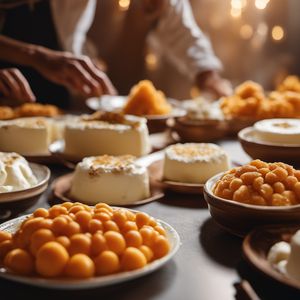
Höşmerim
Turkish cuisine

Japanese Cheesecake
Japanese cuisine
More cuisines from this region...

Eurasian cuisine of Singapore and Malaysia
Spicy, Sweet, Sour, Savory
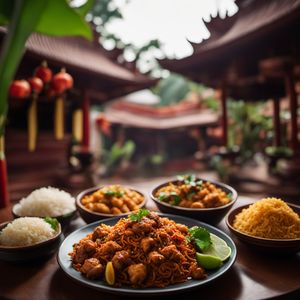
Malay cuisine
Spicy, Sweet, Sour, Salty, Umami

Malaysian Chinese cuisine
Spicy, Sweet, Sour, Salty, Umami
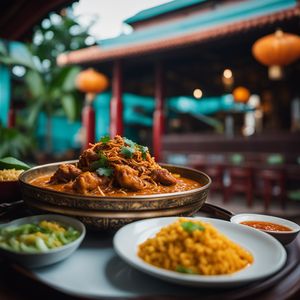
Malaysian Indian cuisine
Spicy, Sweet, Sour, Salty, Umami

Peranakan cuisine
Spicy, Sweet, Sour, Salty, Umami
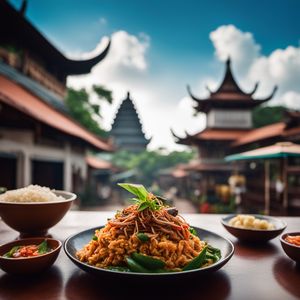
Sabahan cuisine
Spicy, Sour, Sweet, Savory
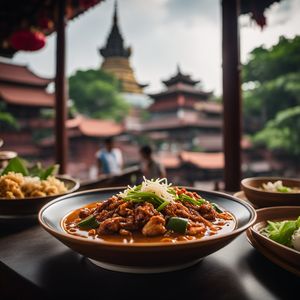
Sarawakian cuisine
Spicy, Sour, Sweet, Savory

